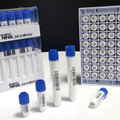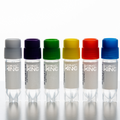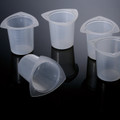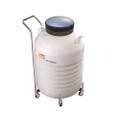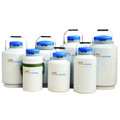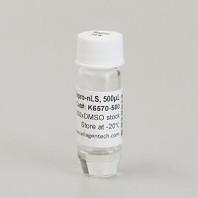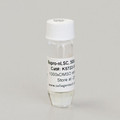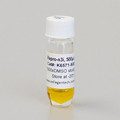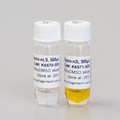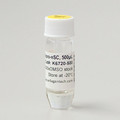 Loading... Please wait...
Loading... Please wait...- Home
- Stem Cell related
- Repro-nLS (1000x) | neural/neuronal cell generation cocktail
- Home
- Chemical Cocktails
- Repro-nLS (1000x) | neural/neuronal cell generation cocktail
Product Description
To achieve the full potential of stem cells in regenerative medicine and disease modeling, high conversion efficiency from hESCs/hiPSCs to neural cells is crucial. A supplement of this small molecule cocktail in cell culture media simplifies the process and increases the productivity of neural and neuronal cell generation.
Repro-nLS (also named as LSB in reference 1) is a combination of two small-molecule inhibitors (LDN193189 and SB431542). Under the Repro-nLS condition, both BMP (ALK2/3) and TGF-beta 1(ALK4/5/7) signaling pathways are inhibited by LDN193189 and SB431542 respectively. hESCs/hiPSCs can be efficiently converted into neural precursor cells in a monolayer fashion under this dual SMAD inhibition. More than 80% of hESCs are rapidly and uniformly converted into Pax6+ neural precursor cells. This cocktail can be further combined with other patterning factors to readily generate subtype specific neural and neuronal cells 1-3, such as nociceptors when used with 3i 1 (SU5402, CHIR99021 and DAPT)( See Repro-nLSB3i).
Technical information:
| Cocktail Formulation: 1000xDMSO stock solution |
0.1 mM of LDN193189 (BMP inhibitor), and 10 mM of SB431542 (TGF-ß1 inhibitor). |
|
| Purity: | >98% (for each compound) |
Shipping Condition: The product is shipped in a glass vial at ambient temperature.
Storage: Store DMSO solution at -20oC.
Usage: Add/Dilute Repro-nLS stock solution at 1:1000 into your hESC/iPSC basal media to reconstitute 1x media for neural differentiation.
Reference:
| 1. | Chambers SM, et al., Combined small-molecule inhibition accelerates developmental timing and converts human pluripotent stem cells into nociceptors. Nat Biotechnol. 2012 30(7):715-20. |
| 2. | Chambers SM, et al. Highly efficient neural conversion of human ES and iPS cells by dual inhibition of SMAD signaling. Nat Biotechnol. 2009 27(3):275-80. |
| 3. | Yu PB., et al. BMP type I receptor inhibition reduces heterotopic ossification. Nat Med. 2008 14(12):1363-9. |
Other Information:
Product Specification (pdf)
MSDS (pdf)


